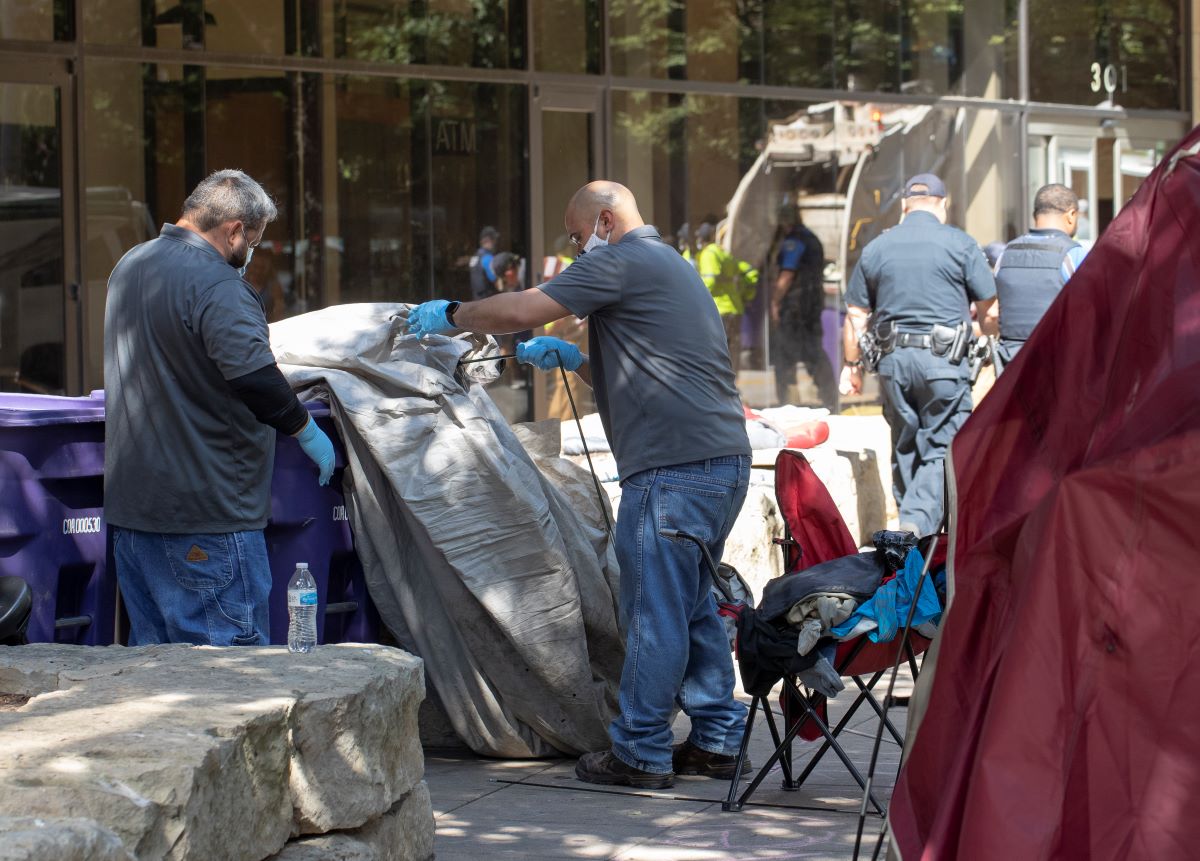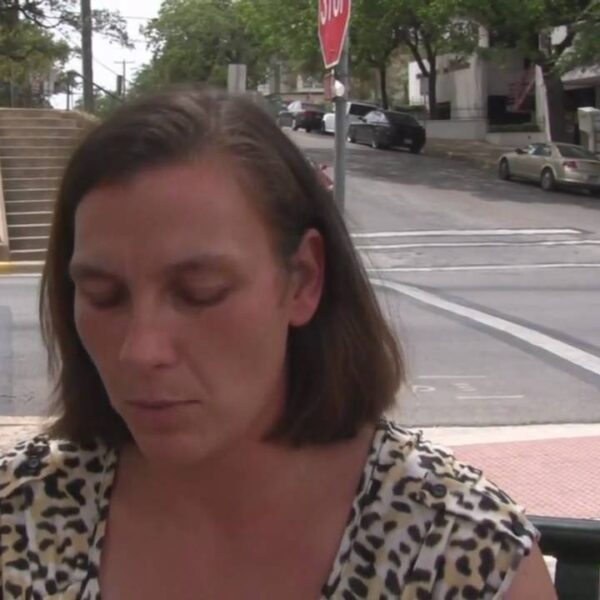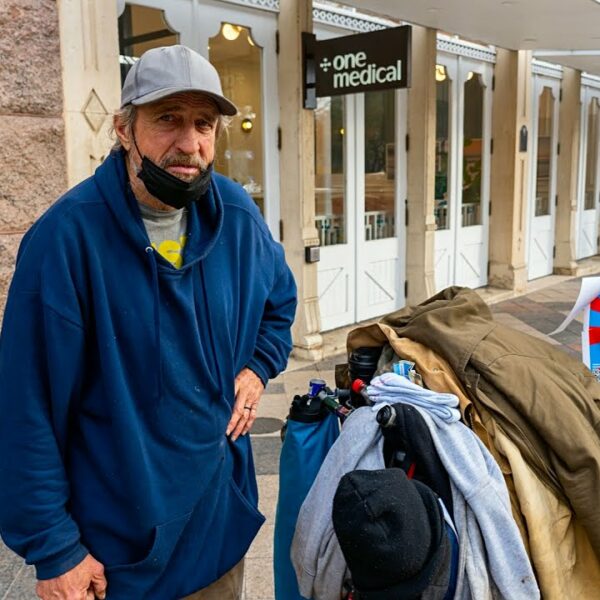“If we don’t leave or we can’t get up… y’all are offering us jail.”
Former Austin encampment resident
On the morning of September 29th, a police van parked outside a homeless encampment in Austin, Texas, with officials fully prepared to remove the remaining residents from the makeshift space they had been calling home. Those orders would be carried out peacefully or forcefully depending upon the level of cooperation, or so it would seem.
In reality, it is brutal, nearly gut-wrenching, to cooperate with someone who is tossing everything you own – from the tent you sleep in to the medication you take to survive – into a trash receptacle and scorning your mere existence.
As Austin residents scrambled to temporary locales, the same exact thing was taking place at a different encampment in the region on Riverside Drive. These scenes were the epitome of most police-led encampment sweeps.
Garbage cans brimmed with people’s last worldly possessions, law-enforcement edged the streets, a sinking feeling permeated as human beings, already on their last legs, received the final, fatal blow to their humanity. And with the last of their belongings seized, a new threat shook them- the threat of being arrested merely for being homeless.
The latest sweeps in the Austin area are a response to public outcry.
Based on currently available information, a jaw-dropping 2,238 human beings in Austin alone are residing in spaces not fit for human habitation. These spaces include the following:
- Tent encampments
- Abandoned buildings
- RVs
- Cars
- Street corners and more
In addition to these individuals, almost a thousand more people are residing in congregate or non-congregate shelters in the area. Authorities say those shelters are virtually overflowing.
With their feet on the ground and the sound of sirens in the background, encampment residents collectively ask themselves the most obvious question of all, “Where do we go from here?”
And through a string of newly implemented policies, the public soberingly responds, “Anywhere but here.”
Criminalization of Homelessness is Rapidly Increasing in Austin and Elsewhere. But is this an Effective Response to the Homeless Crisis?
In May of this past year, in response to the growing homelessness crisis regionally and nationwide, Austin voters moved to revive previously withheld anti-camping laws and policies. These policies fall under Texas House Bill 1925. They make life-sustaining activities such as sleeping, sitting, and storing personal belongings a Class-C Misdemeanor for persons experiencing homelessness. The end result so far has been 130 citations and 506 legal warnings in the past five months.
Apparently, this is the City of Austin’s idea of “homeless assistance.”
In a 2017 report, they raved of the effectiveness of their city camping ordinances, claiming that when the policies were enforced, homeless people sleeping and sitting was reduced by 63%. Note that unsheltered homelessness increased by 45% during this time period, and homelessness itself reached a ten-year high. This is the kind of “assistance” prioritized by the city and the sentiment reinforced by its voters.
The burgeoning question remains. If homeless people reduced sitting and standing by 63%, what were they doing in place of sitting and standing? Falling and dying? Would that not be the only viable alternative? How long can one resist sitting and standing before they finally just collapse from exhaustion? More importantly, why is collapsing from exhaustion being packaged (and sold) to city voters as a kind of solution to homelessness.
Criminalizing Homelessness Does Not Create More Housing, nor Does it Generate Profit for Communities
In fact, criminalizing homelessness has proven to be a costly venture that drains communities of revenue better spent elsewhere.
The justification for this is rooted in one of the biggest lies being told across the nation. This is the lie that homeless people are criminals. It has been debunked repeatedly. Studies continue to show that the so-called undesirables of our society are predominantly people who cannot afford housing. Many of them work full or part-time jobs. Some of them work more than one job.
Yet all of this data falls on a public that remains largely unconvinced.
Let us shift the glass in this perspective ever so slightly. Let us take the focus off of individuals and look instead at the housing market in this region of Texas.
Austin’s NPR Station, KUT 90.5, recently reported a staggering statistic regarding Austin’s housing market. According to their data, rental prices increased in Austin at a rate of approximately 20% per year.
Manager of Apartment Trends Robin Davis said, “we’ve been tracking the market for 28 years now, and we’ve never seen this kind of increase.”
Audrey McGlinchy for NPR wrote that “prices are rising at the fastest pace ever.”
In response to steep prices and stiff competition for homes, one frustrated couple claimed, “It feels like a scam.”
It is a scam. And one that stands to make a lot of people rich while ushering an entire generation of poor people into for-profit prisons.
Talk to your friends and family about what’s happening in Austin and across the country. Criminalization is not the solution to homelessness. Affordable housing is.
In the recent past, voters moved to enforce anti-camping bans. Their choices have only increased homelessness in the region. Today, your voice needs to drown theirs out. Be sure to tell your legislators that you are staunchly opposed to Bill 1925. Make it clear that you support housing over handcuffs and suggest they do the same.













